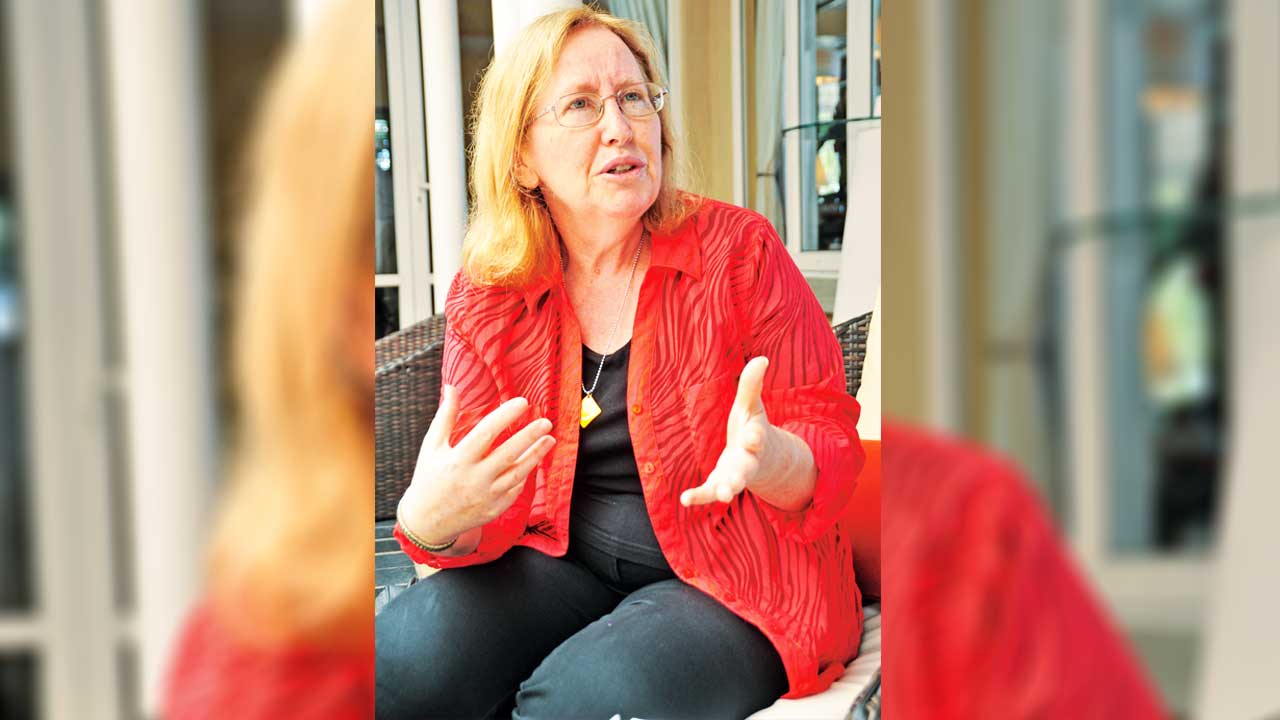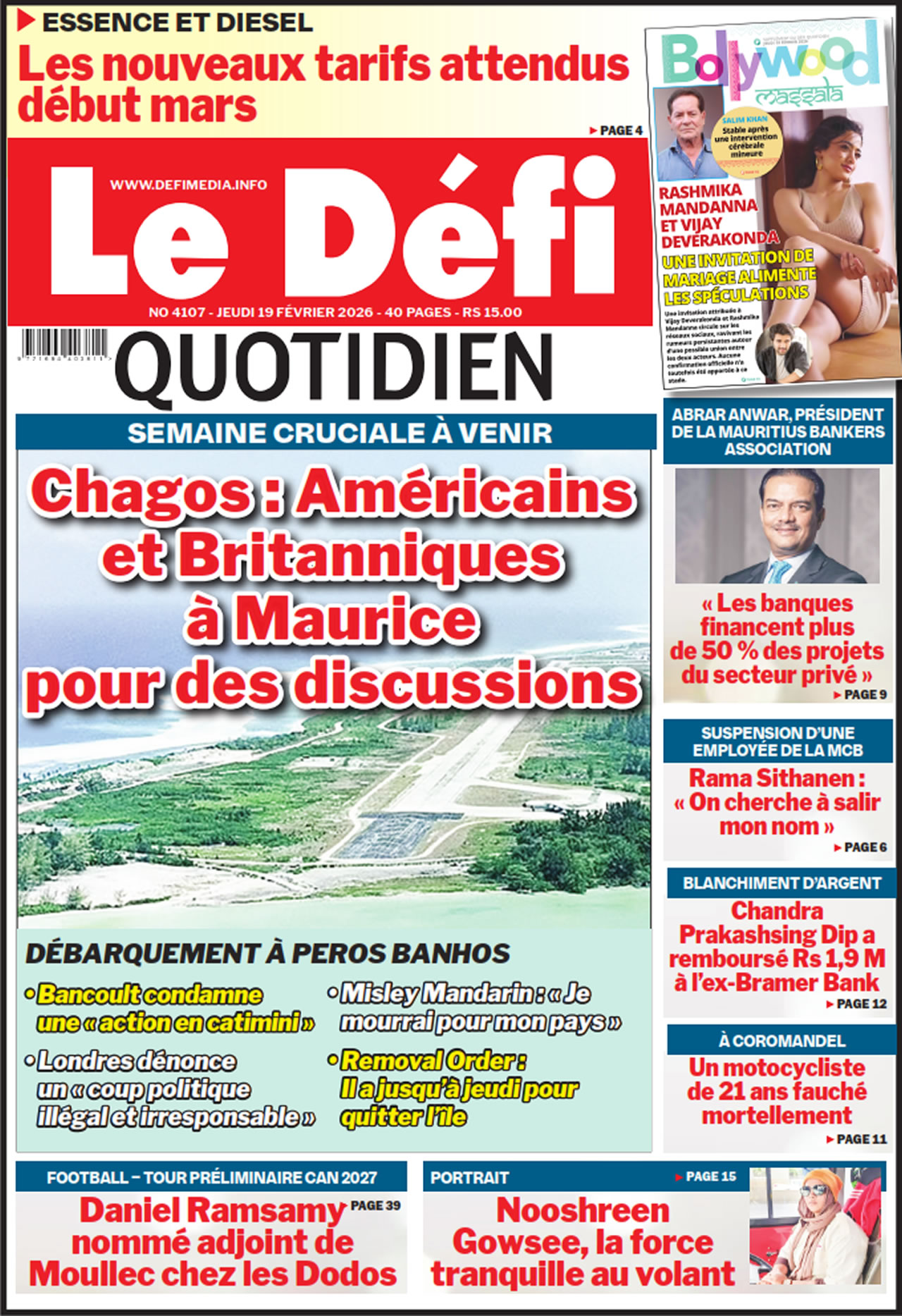
Professor Narelle Haworth, Director of CARRS-Q (The Centre for Accident Research and Road Safety-Queensland) was in Mauritius recently. She shared some of her extensive knowledge in research on road safety and explains effective prevention measures.
Professor Haworth, could you tell us about the purpose of your visit to Mauritius?
We were approached by the Mauritian government to share our expertise in terms of understanding of road safety and to propose new measures and programs. We are involved in road safety programs throughout the world. Recently, we were called upon to devise a regional strategy in ASEAN (Association of Southeast Asian Nations) countries. This region stretches from Singapore to Myanmar. We have a tract record in trying to understand issues pertaining to qualities of infrastructure and to what solutions we might propose. Some solutions are not appropriate culturally to some countries. That “something”, which makes the difference, has to be learnt from experience.
Professor, you mentioned about solutions that could not be culturally acceptable. Could you elaborate on this aspect?
Recently, we were in Bangladesh where we were commissioned to find ways to improve pedestrian safety. We came to understand that in this country, it is believed that if you are rich and powerful, you travel by car and if you are poor, you have to walk. Now, the zebra crossing meant for pedestrians is based on a British model and it requires compliance with the existing laws for it to work, In many countries, there is no compliance with legislations because of the social hierarchy. You cannot always transfer from one country to another some methods, although they are universal.
But professor, there must be some common denominator?
Indeed and that is the fragility of the human body. The human body can stand a certain level of damage without that being fatal. This is a fact whether it is in Mauritius, China or Australia. So road infrastructures and vehicles should be designed to cater for the weaknesses of the human body. For instance, cycling tracks should be designed in a certain way so that is safe for the rider. Similarly, another universal factor is that people will always make mistakes. We know for sure that people make mistakes and that also depend on other factors. For instance, children cannot understand certain things while older persons have other difficulties. Sometimes people are distracted or make misjudgments while using the transport infrastructure. We should therefore design a system with more potential so that human mistakes do not lead to a crash. Also the degree of protection must be increased. Road safety is the interface between themes that we need to consider.
“ For the last five years, in Mauritius, the rate is twelve fatalities per hundred thousand persons. It is about the double in the safest countries. The rate has remained more or less the same during the past five years. But that is the tip of the iceberg."
Have you assessed the situation in Mauritius? A total of 104 persons have lost their lives in road accidents since the beginning of the year.
For the last five years, in Mauritius, the rate is twelve fatalities per hundred thousand persons. It is about the double in the safest countries. The rate has remained more or less the same during the past five years. But that is the tip of the iceberg. We should also consider the serious injuries. Serious injuries are more important for the society than fatalities, because they never return to be productive and they represent a cost to the society and their respective family. In Mauritius, if we look not only at the fatalities but also at the serious injuries, it will open a bigger picture of the situation with regards to road accidents. Things might get worse with more vehicles on the road coupled with other activities. As the economy grows, more road trauma is bound to occur. Road trauma is the biggest killer in the 15 to 30 age group. We are spending so much on their education and they represent the future of the country. Yet they are so vulnerable.
Why is road safety such an important issue, nationally, regionally and internationally?
One of the reasons is that we must meet the targets of the UN Decade of Action for Road Safety (2011-2020), more precisely that of bringing down road traumas. Around the world, in a year, around 1.2 million persons are killed in road accidents. Can you imagine that? It is same as the population of Mauritius. Some 50 million persons are seriously injured.
What would be the solutions, Professor Haworth?
The United Nations said that there are five pillars of road safety, namely road safety management, safe roads, safer vehicles, safer road users and post crash response.
Mauritius is doing well in post-crash response. It is a small island and it is easier to respond quickly. On the other hand, there are lots of two-wheelers here. In Mauritius, three quarter of road accidents involve motorcyclists, pedestrians and cyclists. Only a quarter involve people travelling by cars. In Australia, there are few two-wheelers whereas in Vietnam, 90% of the national fleet consist of two-wheelers. This gives us a first clue where the authorities should pay attention. I must also add that I have noticed that people riding motorcycles here are never without their helmet but some of these helmets are not of high quality. I talked to people from the SAMU and they confirmed that some persons involved in motorcycle accidents had bad injuries despite the fact that they were wearing their helmets. There should be good rules regarding the quality of helmets.
What would be the way forward to reduce the number of road accidents?
Lots more information collected need to be analysed. Whatever we have collected so far has provided us with some initial direction and guidance. We cannot pretend that we can come to conclusions unless we dig further. We need to talk to other stakeholders like the Police, the ambulance service and the insurance companies. All this will lead us to a better diagnosis and thus the program would be more effective. We are encouraging the Government of Mauritius to conduct a national survey on the modes of transport, the behaviour and attitude of all the actors. Once we analyse all this, it will give us a better understanding of the situation which will enable us to identify solutions. We are keen to work in that direction, while recognizing that part of the job is the stimulating interaction between society and the government.
Do you have a time-frame?
It takes several years to come forward with better systems to prevent road crashes. We must start a survey and within one year we would have a better understanding of the situation. Road safety strategies take some twenty years to be effectively implemented. In the first years we must lay down the foundation for improving the system to curb down road accidents. Then we can meet the goals of the strategy. Shared understanding will lead us to devise a set of measures. We will identify the causes. Each one of us has a different role to play but we have a common objective: that of curbing down road accidents and reducing fatalities as well as serious injuries.
 J'aime
J'aime














